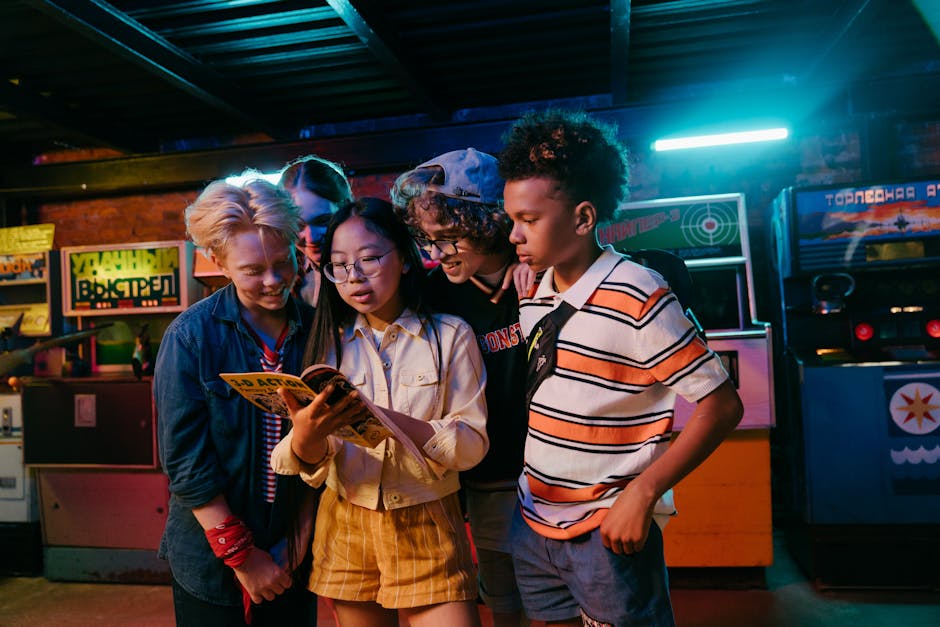- Get link
- X
- Other Apps
- Get link
- X
- Other Apps

The gaming world is abuzz with news that sent a ripple of nostalgia through veteran players and sparked curiosity among a new generation: the PC Engine game City Hunter is making a grand return after 35 years, with its revival set to be unveiled at TGS2025. As a game analyst and a devoted gamer, this announcement isn't just about a single title; it's a testament to enduring legacies, the power of nostalgia, and the evolving landscape of game development.
The Echo of Three Decades: Why This Revival Matters
For those who remember the original console, the PC Engine (also known as the TurboGrafx-16 in North America) holds a special place. It was a console ahead of its time, boasting impressive graphics and sound capabilities for its era. Among its diverse library was a game based on the beloved manga and anime series, City Hunter. While details on the original PC Engine title can vary depending on which version one refers to (there were a few City Hunter games across different platforms, but the headline specifically mentions the PC Engine version), its revival after 35 years speaks volumes.
This isn't merely a re-release; the term "revival" suggests something more profound. It implies a re-imagining, a remaster, or perhaps even a completely new game built upon the foundation and spirit of the original PC Engine title. As a gamer, the thought of rediscovering this classic, potentially with modern sensibilities, is both exciting and slightly nerve-wracking. Will it retain the charm and challenge that defined the 8-bit/16-bit era, or will it be modernized to appeal to today's audience?
Predicting Innovation and Gameplay Systems
When a game from 35 years ago is revived, the potential for innovation is immense. While the original City Hunter games often leaned into adventure or action genres, a modern revival could take many forms:
- Graphical Overhaul: The most obvious enhancement would be a complete graphical update. Will it opt for a full 3D remake, or will it choose a pixel-art aesthetic that respects its PC Engine roots while offering higher resolution and more intricate animations? I personally hope for a beautiful blend – perhaps a "HD-2D" approach that marries retro pixel art with modern effects.
- Enhanced Gameplay Mechanics: The original games might feel simplistic by today's standards. A revival could introduce more complex combat systems, deeper exploration, updated puzzle mechanics, and quality-of-life improvements like autosave, clearer objectives, and improved controls.
- Expanded Story and Content: With 35 years of advancements in narrative design, the developers could expand upon the original storyline, add new missions, characters, or even delve deeper into the lore of Ryo Saeba and Kaori Makimura.
- Accessibility Features: Modern games prioritize accessibility. Expect options for customizable controls, difficulty settings, and visual/audio aids to make the game enjoyable for a broader audience.
The challenge for developers will be to innovate without alienating the core fans who cherish the original. It's a delicate balance between modernization and preservation.
Target Demographics: A Bridge Across Generations
The target audience for this City Hunter revival is likely multifaceted:
- Nostalgia Seekers: This is the primary demographic. Gamers who were around when the PC Engine was current, now in their 40s or 50s, will be eager to revisit a piece of their gaming history. The mere mention of PC Engine and City Hunter after 35 years is a powerful call to their past.
- City Hunter Fans: The enduring popularity of the manga and anime means there's a constant influx of new fans. Many of them might not have known about the original game, and this revival offers them a chance to experience the franchise in a new interactive format.
- Retro Gaming Enthusiasts: The burgeoning retro gaming community, including those who emulate or collect vintage titles, will be keenly interested in how a classic PC Engine game is brought into the modern era.
- Curious Newcomers: A well-executed revival can attract younger players who are simply looking for a unique gaming experience, especially if the game offers compelling narratives or innovative gameplay that stands out from contemporary titles.
Industry Impact: The Ripple Effect
The announcement of City Hunter's 35-year revival at TGS2025 could have several significant impacts on the gaming industry:
- Validation of Licensed IPs: It underscores the continued value of strong licensed intellectual properties. When managed correctly, an old IP can be a goldmine for new content.
- Boost for Retro Revivals: A successful revival could encourage other publishers to delve into their archives and bring back more beloved, long-dormant titles from consoles like the PC Engine, NES, SNES, or Sega Genesis. This could lead to a new wave of "legacy" games.
- Showcasing Preservation and Re-imagination: It highlights the importance of game preservation, not just through emulation but through official re-releases and thoughtful remakes that introduce classics to a wider audience.
- TGS2025 Spotlight: As a major announcement for TGS2025, it will undoubtedly draw significant attention to the event, showcasing its continued relevance as a platform for major industry news.
As a game analyst, I see this as a strategic move to tap into both established fan bases and new markets. As a gamer, I'm holding my breath, hoping for a revival that respects its heritage while boldly stepping into the future. The countdown to TGS2025 has officially begun, and I, for one, can't wait to see what Ryo Saeba and the developers have in store for us after all these years!
Comments
Post a Comment